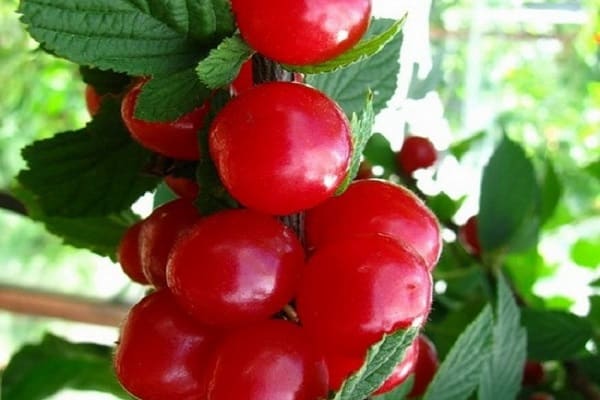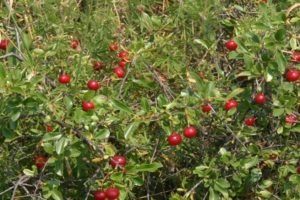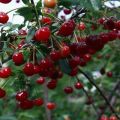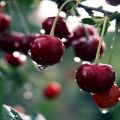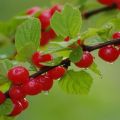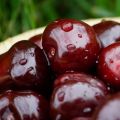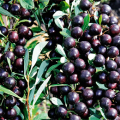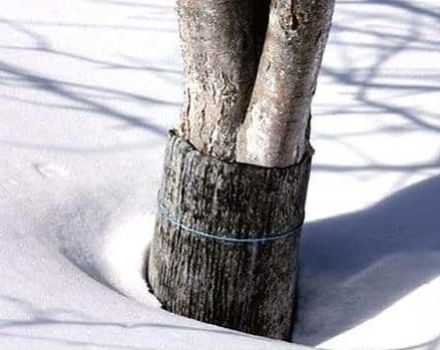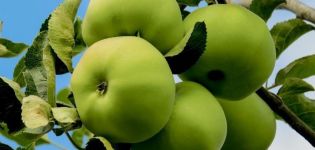Description and characteristics of the Bystrinka cherry variety, history, planting and care features
The cherry orchard is a gardener's dream, but sometimes you have to face difficulties. The right variety will help you avoid common mistakes. Bystrinka cherries are undersized, but fruitful and unpretentious. It is easy to grow them on the site, even a beginner can cope with this task.
Origin story
The relatively young Bystrinka cherry variety has been available to the public since 2004. Russian breeders have developed a variety specifically for the middle lane.
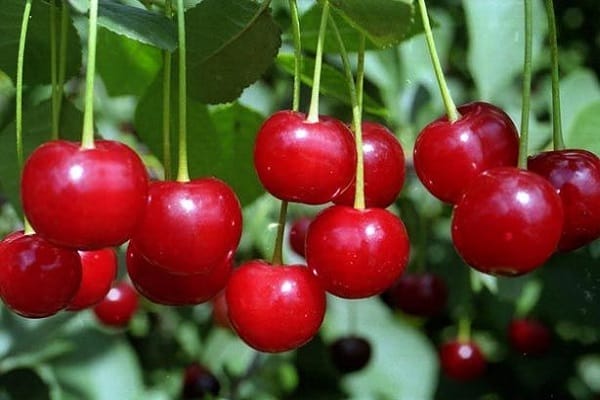
Authors:
- Kolesnikova A.F .;
- Mikheeva M.V .;
- Zhdanova G.B.
The adapted variety is frost hardy and productive
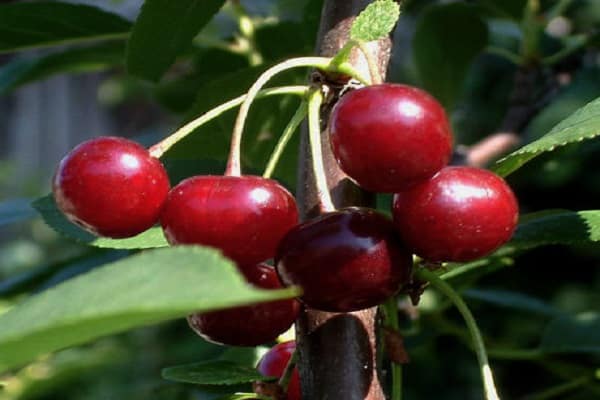
Description of the variety
It is not uncommon for a gardener to make a mistake when growing a tree. Therefore, experienced summer residents are advised to study the description of the variety.
The tree is not tall, 2-2.5 m. The crown is not dense, in the shape of a ball. The yield is 20 kg per tree, subject to proper care. Bystrinka is appreciated by gardeners for the convenience of harvesting and undemanding care.
Flowering and fruiting are very early, in May the cherry pleases the gardener with color, and the first fruits are harvested in early July.
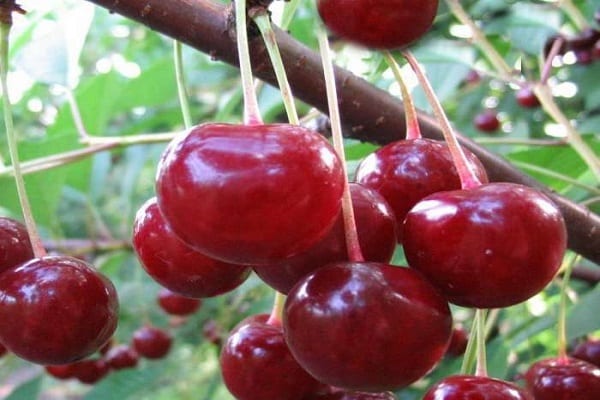
Berries are oval, weighing 4.5 g, burgundy. According to the tasters, Bystrinka received 4.3 points. It has a small bone that is easily separated from the pulp. For this reason, housewives actively use it for any preparations for the winter:
- jam;
- jams;
- juices;
- compotes and more.
Cherries are frozen and consumed fresh.
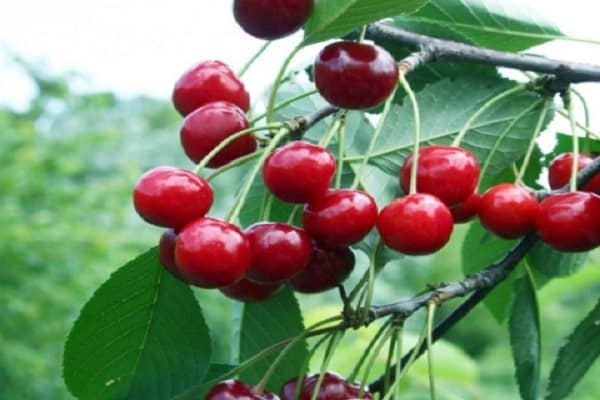
Landing rules
Cherries are planted in spring and autumn. Experienced gardeners advise doing this in the spring, so the seedling has more chances to settle down in a new place:
- Correct selection of a place for landing. The soil should be non-acidic, loamy or sandy loam. A site well warmed by the sun and protected from drafts is required.
- Seedling selection. A healthy tree takes root faster and begins to grow. It is necessary to pay attention to the root system and the presence of cracks in the trunk.
- Correct fit. Before planting a seedling, it is placed in a solution that stimulates the growth of the root system. Then a pit is prepared for planting 60 * 70 cm. The distance between trees is 2.5 m. The installation of a support is mandatory, a fragile tree needs support. The root collar should remain above the surface after the seedling is covered with soil.
Meeting these requirements will help the seedling take root and grow faster.
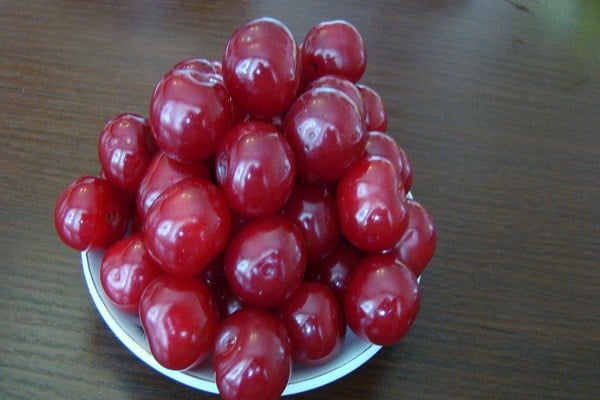
Care
After the tree is planted, you need to take care of it. Fulfilling standard agricultural techniques, taking into account the characteristics of the variety, the gardener will receive the declared yield.
Pruning
The undersized Bystrinka cherry requires special attention in this respect.Strict control of crown growth is required. Starting from the first year of life in a new place, the cherry is formed.
An annual seedling is cut at a height of 50-70 cm. 5 cm above the last bud. In a two-year-old, 8 skeletal branches are left, the rest are removed. The branches themselves are shortened by a third of the length. Further shaping is to remove weak branches.
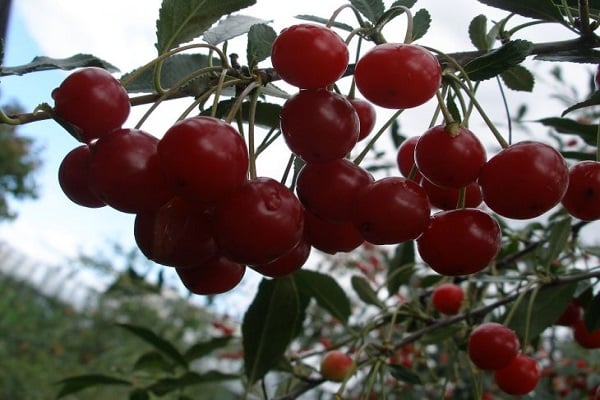
Watering
The first time it is necessary to regularly water young trees. Depending on the weather conditions, it is watered once every 1-2 weeks. You do not need to pour and let the cherries dry.
Fertilizers
Every gardener has his own opinion on this matter. But all agree on one thing, at first there is no need to feed the cherries.
Subsequent years fertilize 3 times per season:
- in early spring, well before flowering;
- during the flowering period;
- in the fall in preparation for winter.
Timely fertilization will help the tree bear fruit and fight off pathogens.
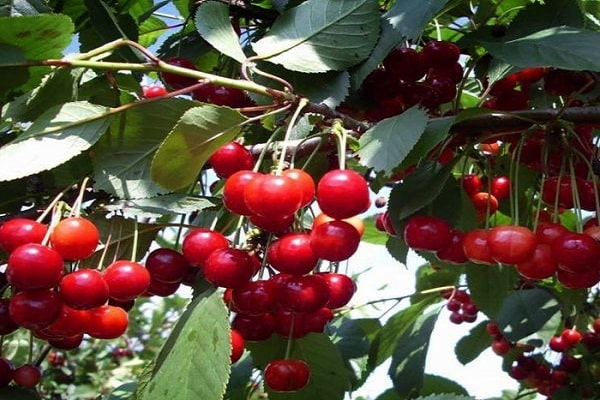
Diseases and pests
If you take proper care of trees, they will not hurt. Bystrinka has an average immunity to diseases. It is advisable to carry out preventive treatment of trees in the spring, until the buds swell.
At this time, chemicals or folk remedies are used, depending on the wishes of the gardener.
Bystrinka is a cherry that is suitable for gardeners with small summer cottages. It takes up little space and requires little effort to grow.
